At the age of twelve I had an attitude toward life that was to endure, that was to make me seek those areas of living that would keep it alive, that was to make me skeptical of everything while seeking everything, tolerant of all and yet critical.
RICHARD WRIGHTWe smelted iron, danced, made music and folk poems; we sculpted, worked in glass, spun cotton and wool, wove baskets and cloth.
More Richard Wright Quotes
-





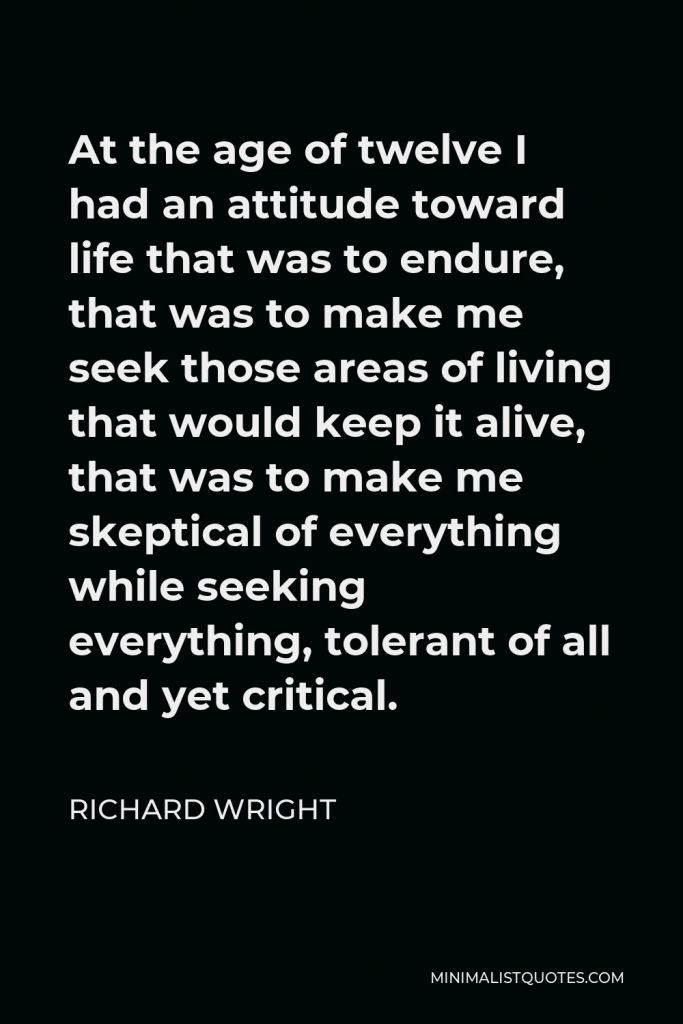

-







Goddamnit, look! We live here and they live there.
RICHARD WRIGHT -





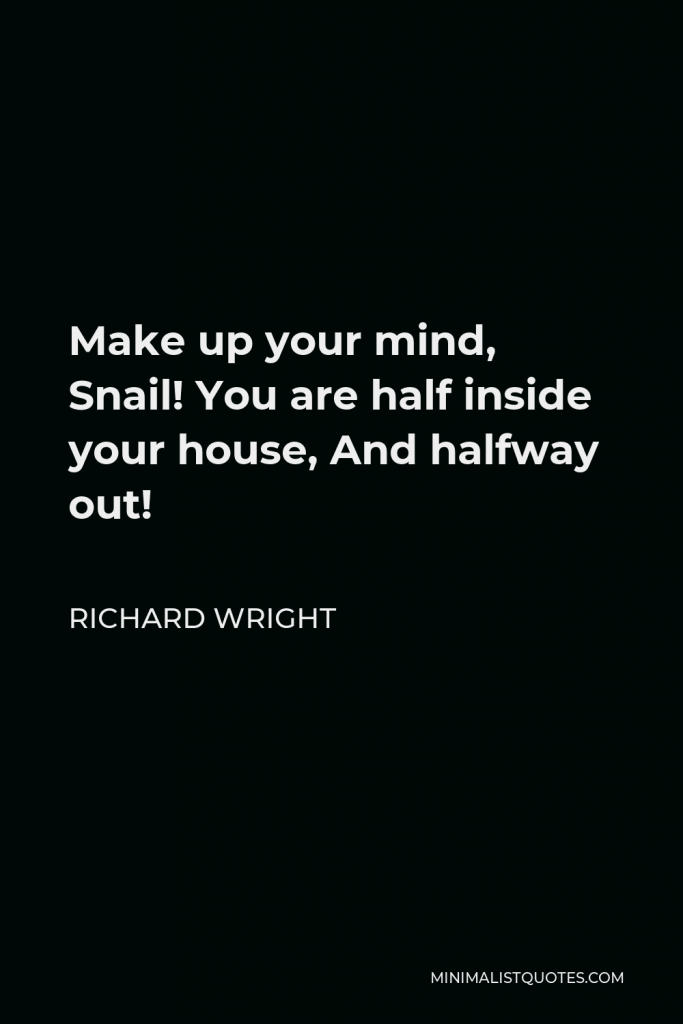

Make up your mind, Snail! You are half inside your house, And halfway out!
RICHARD WRIGHT -





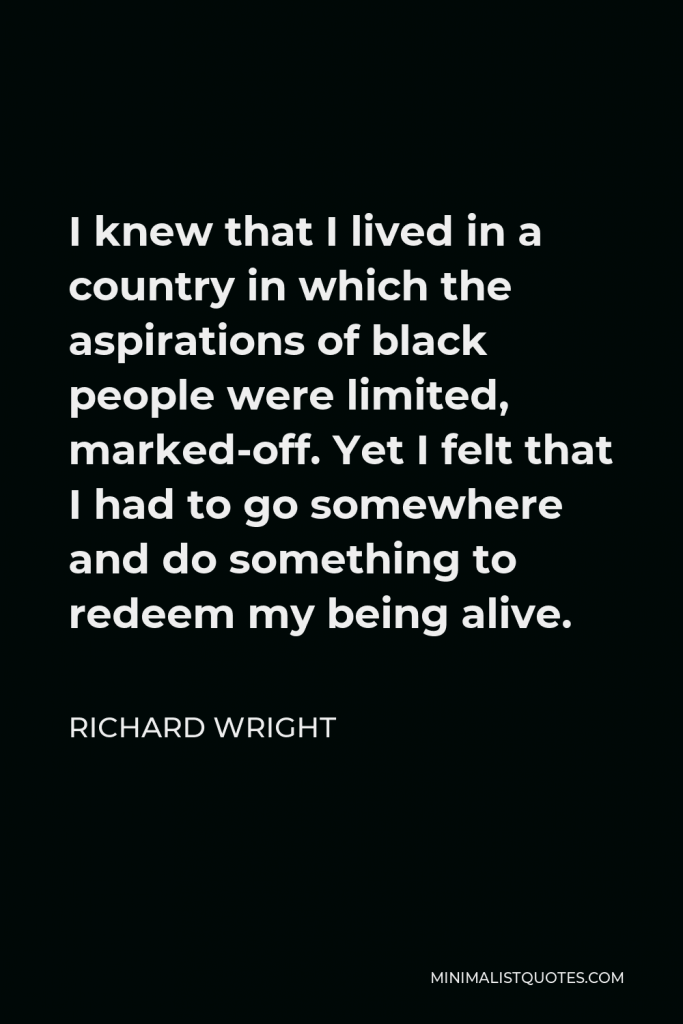

I knew that I lived in a country in which the aspirations of black people were limited, marked-off. Yet I felt that I had to go somewhere and do something to redeem my being alive.
RICHARD WRIGHT -







A mode of being that the way of life about me had said could not be, must not be, and upon which the penalty of death had been placed.
RICHARD WRIGHT -







Reading was like a drug, a dope. The novels created moods in which I lived for days.
RICHARD WRIGHT -







Somewhere in the dead of the southern night my life had switched onto the wrong track and without my knowing it.
RICHARD WRIGHT -







They hate because they fear, and they fear because they feel that the deepest feelings of their lives are being assaulted and outraged.
RICHARD WRIGHT -





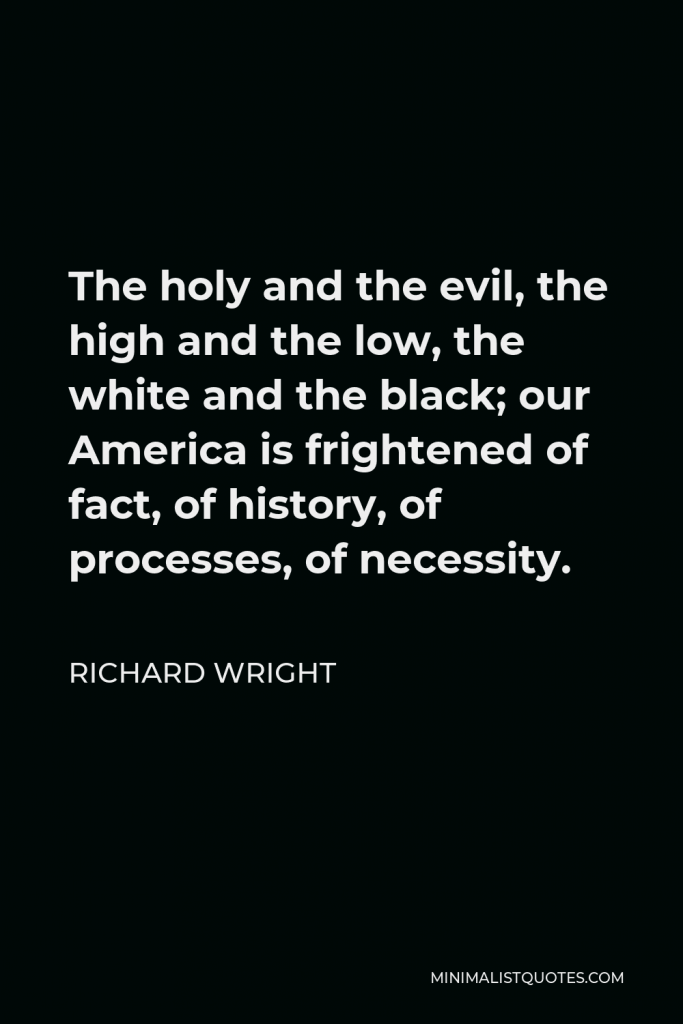

The holy and the evil, the high and the low, the white and the black; our America is frightened of fact, of history, of processes, of necessity.
RICHARD WRIGHT -





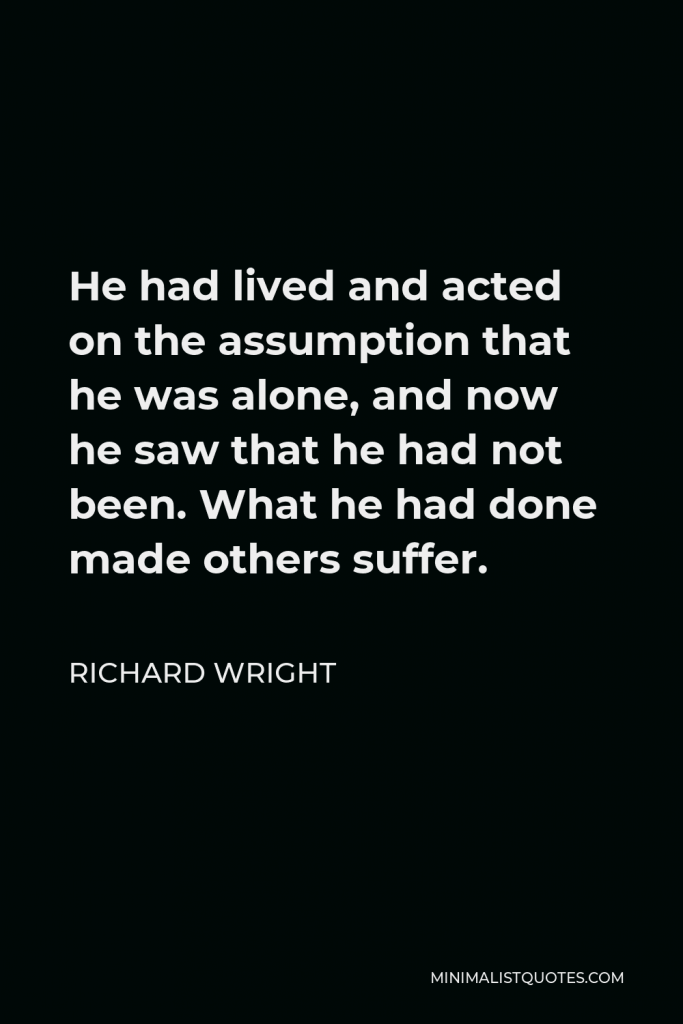

He had lived and acted on the assumption that he was alone, and now he saw that he had not been. What he had done made others suffer.
RICHARD WRIGHT -







All literature is protest.
RICHARD WRIGHT -






We invented a medium of exchange, mined silver and gold, made pottery and cutlery, we fashioned tools and utensils of brass, bronze, ivory, quartz, and granite.
RICHARD WRIGHT -







If a man confessed anything on his death bed, it was the truth; for no man could stare death in the face and lie.
RICHARD WRIGHT -





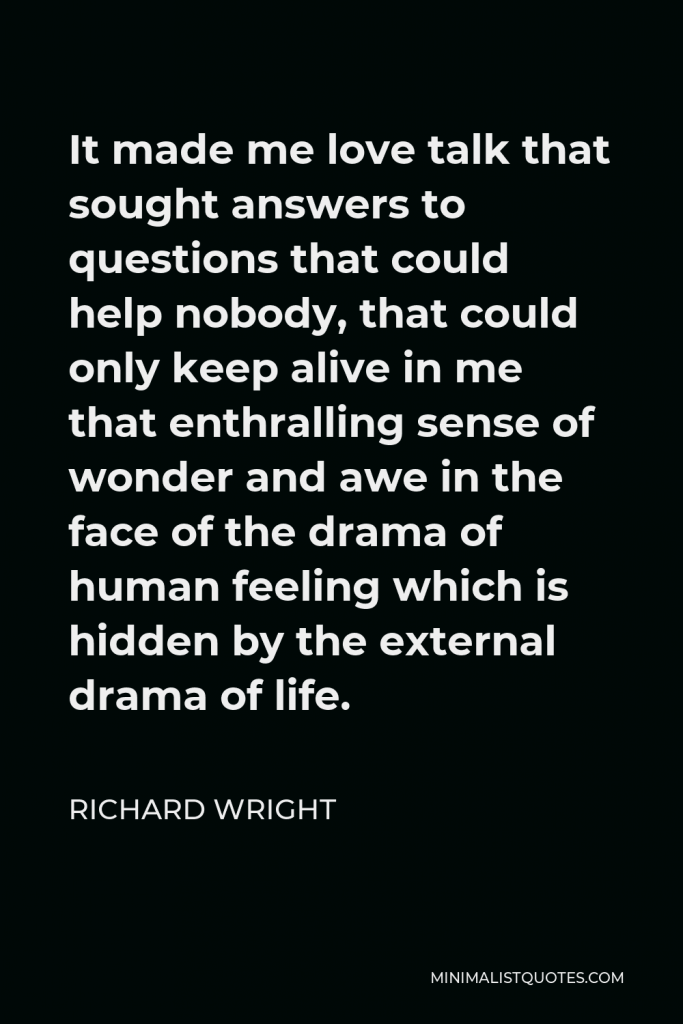

It made me love talk that sought answers to questions that could help nobody, that could only keep alive in me that enthralling sense of wonder and awe in the face of the drama of human feeling which is hidden by the external drama of life.
RICHARD WRIGHT -





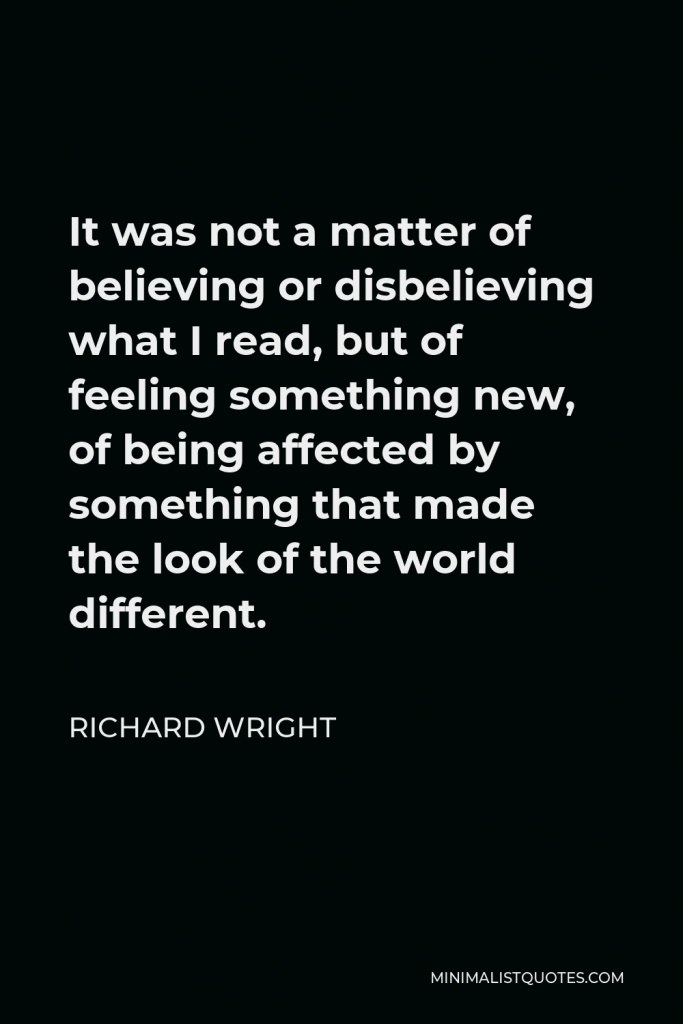

It was not a matter of believing or disbelieving what I read, but of feeling something new, of being affected by something that made the look of the world different.
RICHARD WRIGHT -





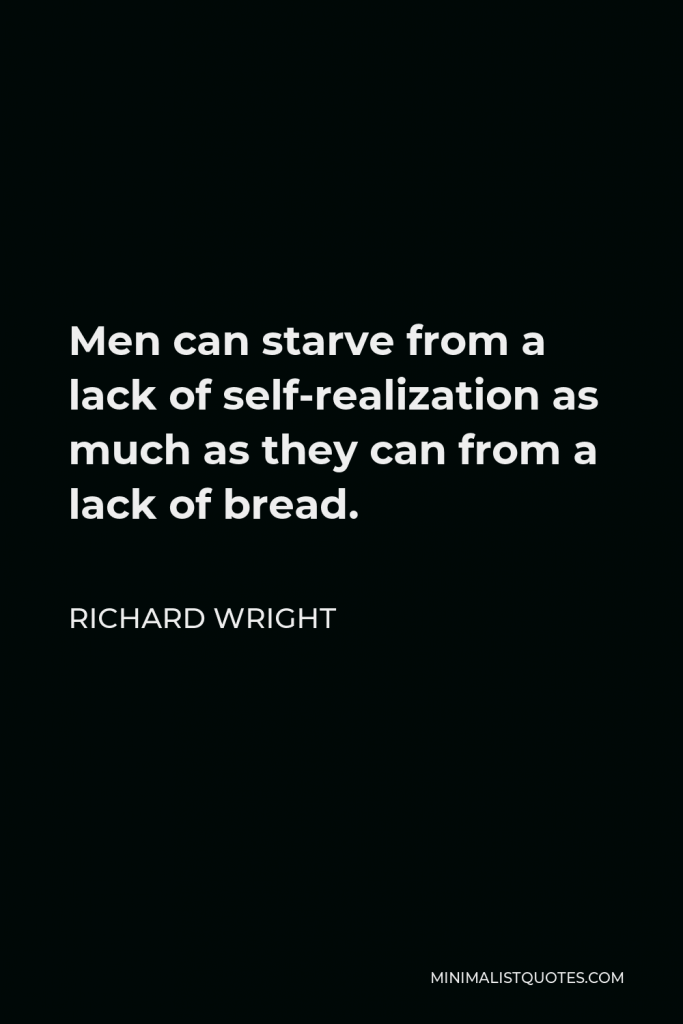

Men can starve from a lack of self-realization as much as they can from a lack of bread.
RICHARD WRIGHT







